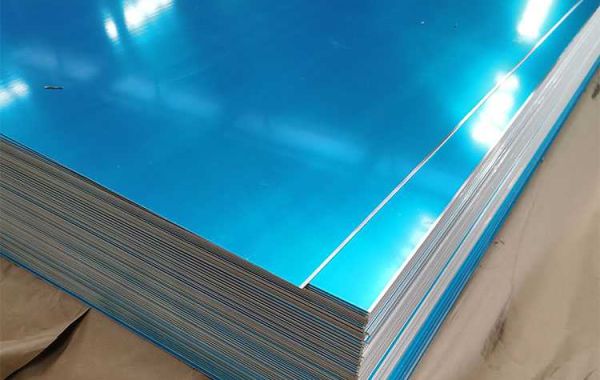The 5x10 aluminum sheet is a cornerstone material in industries ranging from construction to aerospace. Known for its versatility, durability, and cost-efficiency, this standardized sheet size (5 feet by 10 feet) has become a go-to solution for professionals seeking reliable metal solutions. In this comprehensive guide, we’ll explore its key properties, top applications, and factors to consider when purchasing—ensuring you make informed decisions for your projects.
What is a 5x10 Aluminum Sheet?
A 5x10 aluminum sheet refers to a flat-rolled aluminum panel measuring 5 feet in width and 10 feet in length (1.5m x 3m). Available in thicknesses from 0.016” to 0.25” (0.4mm–6.35mm), these sheets are fabricated from alloys like 3003, 5052, or 6061, each offering distinct advantages:
- 3003 Aluminum: Excellent formability and corrosion resistance, ideal for decorative panels or HVAC systems.
- 5052 Aluminum: High strength and weldability, commonly used in marine or automotive parts.
- 6061 Aluminum: Superior structural rigidity, perfect for aerospace or machinery frames.
Key Advantages of 5x10 Aluminum Sheets
Lightweight Yet Durable:
Aluminum weighs 1/3 of steel but offers comparable strength, reducing transportation and installation costs.Corrosion Resistance:
Natural oxide layer protects against rust, even in humid or saltwater environments.Thermal Electrical Conductivity:
Widely used in heat exchangers, electrical enclosures, and solar panel components.Eco-Friendly:
100% recyclable with no loss of quality, supporting sustainable manufacturing practices.Customization Flexibility:
Easily cut, bent, or stamped into shapes. Optional finishes include brushed, polished, or anodized surfaces.
Top Applications of 5x10 Aluminum Sheets
Construction Architecture:
- Roofing, wall cladding, and signage due to weather resistance and sleek aesthetics.
- Structural components for modular buildings or bridges.
Transportation:
- Truck trailers, aircraft fuselages, and ship decks benefit from its strength-to-weight ratio.
Industrial Manufacturing:
- CNC machining parts, conveyor systems, and machinery guards.
Consumer Goods:
- Appliance panels, furniture frames, and DIY craft projects.
How to Choose the Right 5x10 Aluminum Sheet
Alloy Selection:
- Match alloy properties to your project’s needs (e.g., 5052 for welding, 6061 for machining).
Thickness (Gauge):
- Thinner sheets (22–20 gauge) for lightweight applications like signage.
- Thicker sheets (1/8” or above) for load-bearing structures.
Surface Treatment:
- Mill finish for industrial uses; powder-coated or anodized finishes for decorative purposes.
Supplier Credentials:
- Verify certifications (ISO 9001, ASTM standards) and minimum order quantities (MOQs).
Why Source 5x10 Aluminum Sheets from Yongsheng?
- Competitive Pricing: Bulk discounts for orders over 50 sheets.
- Fast Lead Times: 7–14 days for standard sizes; custom cuts available.
- Global Compliance: Meets AMS, DIN, and JIS specifications for international projects.
- Technical Support: Expert guidance on alloy selection, fabrication, and finishing.
5 FAQs About 5x10 Aluminum Sheets
Can 5x10 aluminum sheets be welded?
Yes, alloys like 5052 and 6061 are weldable using TIG or MIG methods.How much does a 5x10 aluminum sheet cost?
Prices range from 200–200–800 per sheet, depending on alloy, thickness, and finish.Are these sheets suitable for outdoor use?
Absolutely—aluminum’s corrosion resistance makes it ideal for exterior applications.Can I order custom sizes?
Many suppliers offer waterjet or laser cutting services for tailored dimensions.What’s the maximum temperature tolerance?
Most alloys withstand up to 400°F (204°C); consult datasheets for specifics.








